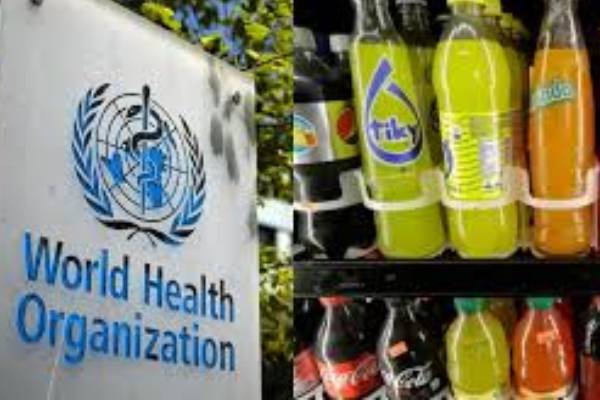The recommendation was made in a statement on WHO’s website announcing its “3 by 35 Initiative”, a global campaign aimed at increasing the real prices of tobacco, alcohol, and sugar-sweetened beverages (SSBs) by at least 50 per cent by 2035 through targeted excise tax reforms.
The UN health agency said health taxes are among the most effective tools to reduce the consumption of harmful products linked to diseases such as cancer, heart disease, and diabetes, while also generating sustainable revenue for public services.
“NCDs account for over 75 per cent of deaths globally, and consumption of tobacco, alcohol and sugary drinks is a major driver,” said Dr Jeremy Farrar, WHO Assistant Director-General for Health Promotion and Disease Prevention. “Health taxes reduce harm and save lives. It’s time to act.”
WHO noted that a one-time 50 per cent price increase on these products could prevent 50 million premature deaths over the next 50 years and generate $1 trillion in new revenue globally within a decade.
The agency said the “3 by 35” campaign comes amid strained health systems, shrinking development aid and rising public debt in many low- and middle-income countries, adding that many of these nations continue to subsidise or offer tax exemptions to harmful industries.
Between 2012 and 2022, about 140 countries raised tobacco taxes, achieving an average price increase of over 50 per cent. Countries like Colombia and South Africa that have implemented robust health tax regimes have recorded reduced consumption and increased public revenue, WHO said.
However, the organisation warned that long-term agreements or incentives granted to tobacco and alcohol industries in some countries pose a threat to effective tax policies and national health goals.
The initiative sets out key action areas, including supporting governments to:
-
Introduce or increase excise taxes to raise prices and reduce affordability of harmful products;
-
Mobilise domestic revenue to fund universal health coverage and social development;
-
Build cross-sectoral political support among finance and health ministries, lawmakers, researchers and civil society.
In Nigeria, the National Sugar Tax Coalition has called on the federal government to raise the sugar tax on SSBs from N10 per litre to N130 per litre, citing a simulation study that predicts a significant reduction in SSB-related NCDs and improved health outcomes.
WHO is calling on governments, civil society, and development partners to support the “3 by 35” Initiative and adopt smarter, fairer taxation systems that prioritise health and accelerate progress towards the Sustainable Development Goals.





